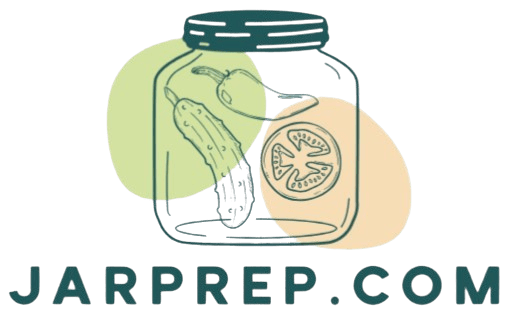What Ingredients Should Be Avoided?
In today s world, being conscious of what you consume extends far beyond mere calories and nutrients. Many everyday products, from the food on your plate to the skincare you apply, may harbor harmful ingredients that could adversely affect your health.
This article delves into common harmful ingredients you should watch out for, outlining their short- and long-term effects. It also offers practical tips for identifying and avoiding them.
By understanding these elements, you can make more informed choices for both your body and skin. This ultimately leads to a more vibrant and fulfilling lifestyle.
Contents
- Key Takeaways:
- Understanding Harmful Ingredients
- Impact of Harmful Ingredients on Health
- Short-term and Long-term Effects
- How to Identify Harmful Ingredients
- Reading Labels and Understanding Terminology
- Avoiding Harmful Ingredients in Food
- Tips for Choosing Healthy Options
- Avoiding Harmful Ingredients in Skincare and Beauty Products
- Frequently Asked Questions
- What ingredients should be avoided in skincare products?
- Why should parabens be avoided in skincare products?
- What are sulfates and why should they be avoided?
- What is the purpose of avoiding fragrance in skincare products?
- Are there any natural alternatives to these harmful ingredients, especially to avoid sodium nitrites and sodium benzoate?
- How can I ensure I am avoiding these ingredients in my skincare products?
Key Takeaways:

- Avoiding harmful ingredients is essential for maintaining good health.
- Reading labels helps identify harmful ingredients in food and beauty products.
- Choosing healthy options promotes overall well-being.
Understanding Harmful Ingredients
Understanding harmful ingredients in food is essential if you want to prioritize your health and well-being. With the increase of processed foods and chemicals in our diets, it s vital to know what distinguishes safe ingredients from harmful ones.
Additives like high fructose corn syrup and artificial sweeteners can negatively affect your health. They may contribute to obesity and chronic conditions. You need to decipher labels and know what to avoid, making education on this topic crucial for making informed nutritional choices.
Commonly Used Harmful Ingredients
Common harmful ingredients in processed foods include trans fats, sodium nitrite, sodium benzoate, and MSG. These additives can pose significant health risks, including increased cholesterol levels, heart disease, and obesity.
Trans fats, often found in baked goods and fried foods, can raise your bad cholesterol while lowering your good cholesterol, as the American Heart Association warns. High fructose corn syrup, predominant in sugary drinks and snacks, has been linked to obesity and metabolic disorders. This includes studies published in the American Journal of Clinical Nutrition.
Artificial sweeteners, often viewed as healthy alternatives, may disrupt how your body converts food into energy, according to research from the University of Cambridge. Sodium nitrite, a common preservative in processed meats, raises concerns due to its association with certain cancers.
Additives like sodium benzoate and MSG face scrutiny for links to health issues, including allergic reactions and neurological effects. By understanding the prevalence of these ingredients, you can take charge and make healthier choices.
Impact of Harmful Ingredients on Health
The impact of harmful ingredients on health is both profound and multifaceted. They influence not just your well-being but also broader public health trends. Ingredients commonly found in processed foods, like trans fats and high fructose corn syrup, are linked to significant health risks, including heart disease and cancer.
As you navigate a world increasingly dominated by convenience foods, understanding the risks associated with these ingredients is essential. This knowledge helps you make healthier choices and curb the rise of diet-related diseases.
Short-term and Long-term Effects

Consuming harmful ingredients can have serious effects on your health, both in the short and long term, ultimately impacting your overall well-being.
In the short term, you might find yourself struggling with digestive issues, headaches, or unpredictable energy levels riding a rollercoaster of sudden highs followed by exhausting crashes. For instance, if you regularly indulge in high-sugar foods, you may momentarily feel a rush of energy, only to be met with fatigue and irritability shortly afterward.
Health professionals caution that these fleeting reactions can set the stage for more significant health concerns. Over time, the cumulative toll of such ingredients can lead to chronic diseases, including obesity and certain types of cancer.
Dr. Smith, a nutritionist, emphasizes that consistent exposure to processed additives can affect how your body uses energy, heightening the risk of serious health challenges.
Testimonials from individuals who have transitioned to natural alternatives highlight the remarkable changes they ve experienced, showcasing the immediate and lasting benefits of making more informed dietary choices.
How to Identify Harmful Ingredients
Identifying harmful ingredients in food demands a discerning eye for nutrition labels the information on food packaging that helps you understand the ingredients and their effects. You must remain vigilant when scrutinizing labels, as numerous additives substances added to food to enhance flavor or preserve it often masquerade under technical names that obscure their true nature.
By cultivating awareness and educating yourself on what to look for, you can enable your decision-making and steer clear of the pitfalls associated with processed foods laden with harmful chemicals.
Reading Labels and Understanding Terminology
Reading labels and grasping the terminology is crucial for you as a consumer who wants to identify harmful additives and preservatives in your food. The key terms on nutrition labels can offer vital insights into the safety and healthfulness of a product, allowing you to make informed choices.
By decoding phrases like “high fructose corn syrup,” “partially hydrogenated oils,” or “artificial flavors,” you can gain a clearer understanding of what you’re consuming and recognize potential health risks. For instance, high fructose corn syrup is associated with obesity and diabetes, while partially hydrogenated oils add unhealthy trans fats that elevate the risk of heart disease.
Being aware of these terms enables you to seek out healthier alternatives, making it essential to scrutinize labels with care. With knowledge about common additives like sodium nitrite or aspartame, you can navigate the complexities of nutrition labels with greater confidence, ultimately leading to better health choices.
Avoiding Harmful Ingredients in Food
Avoiding harmful ingredients in food is a proactive strategy that enables you to make healthier dietary choices. By prioritizing whole foods and being mindful of the additives lurking in processed items, you can significantly lower your risk of chronic health issues such as obesity and cancer.
Implementing thoughtful strategies for selecting healthier options will not only enhance your overall nutrition but also elevate your well-being.
Tips for Choosing Healthy Options

Choosing healthy options requires you to be discerning and informed about the foods you include in your diet. Opting for whole foods over processed varieties can significantly reduce your exposure to harmful additives and preservatives, paving the way for improved health outcomes.
To support your journey, creating a shopping list filled with nutrient-rich ingredients can serve as an excellent guide during your grocery trips. Taking the time to read food labels enables you to understand what s truly in your products, helping you steer clear of hidden sugars and unhealthy fats.
Exploring local farmers’ markets not only encourages you to consume seasonal produce but also connects you with fresh, organic options that can elevate your meals. Experimenting with alternative ingredients like whole grains in place of refined carbs or natural sweeteners instead of sugar can lead to flavorful, healthier dishes that nourish both your body and spirit.
Are you ready to make healthier choices? Start reading labels today and make choices that protect your health!
Avoiding Harmful Ingredients in Skincare and Beauty Products
Choosing skincare products without harmful ingredients is crucial, just like selecting healthy foods. With growing awareness of risks linked to chemicals like sodium benzoate and parabens, many are now looking for safe alternatives that support clean beauty and skin health.
Embracing these choices not only enhances your beauty regimen but also reflects a commitment to overall well-being.
Alternative Options and Safer Choices
Exploring alternative options in skincare empowers you to discover formulations that focus on your health and beauty! By understanding harmful ingredients often hiding in beauty products, you can find safer, effective alternatives.
These formulations replace synthetic chemicals with natural ingredients celebrated for their beneficial properties. For example, shea butter and jojoba oil are fantastic moisturizers, while botanical extracts like green tea and chamomile deliver antioxidant and calming effects.
Brands such as 100% Pure and Tata Harper embody this commitment by offering products made from natural, high-quality components. By advocating for clean beauty, you can dive into research about these brands and actively support companies that resonate with your values, ultimately driving meaningful change in the beauty industry.
Frequently Asked Questions
What ingredients should be avoided in skincare products?

Skip ingredients like parabens, sulfates, and artificial fragrances. They can irritate your skin and cause long-term harm.
Why should parabens be avoided in skincare products?
Parabens are preservatives found in many skincare products. They pose potential health risks and may disrupt your hormonal balance.
What are sulfates and why should they be avoided?
Sulfates are harsh cleansing agents often found in foaming products like cleansers and shampoos. They can strip the skin of its natural oils, leading to dryness and irritation.
What is the purpose of avoiding fragrance in skincare products?
Fragrance may smell nice, but it can irritate sensitive skin. It can also contain allergens and toxins that may harm your skin.
Are there any natural alternatives to these harmful ingredients, especially to avoid sodium nitrites and sodium benzoate?
Yes! You can find many natural ingredients to replace harmful chemicals, including essential oils, plant extracts, and natural preservatives.
How can I ensure I am avoiding these ingredients in my skincare products?
Always read the ingredient list on product labels and research any unfamiliar ingredients. Look for products labeled as “paraben-free,” “sulfate-free,” and “fragrance-free” to be safe.
Don’t wait to make the switch to safer products your skin deserves it!






